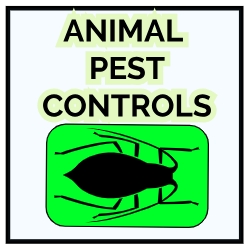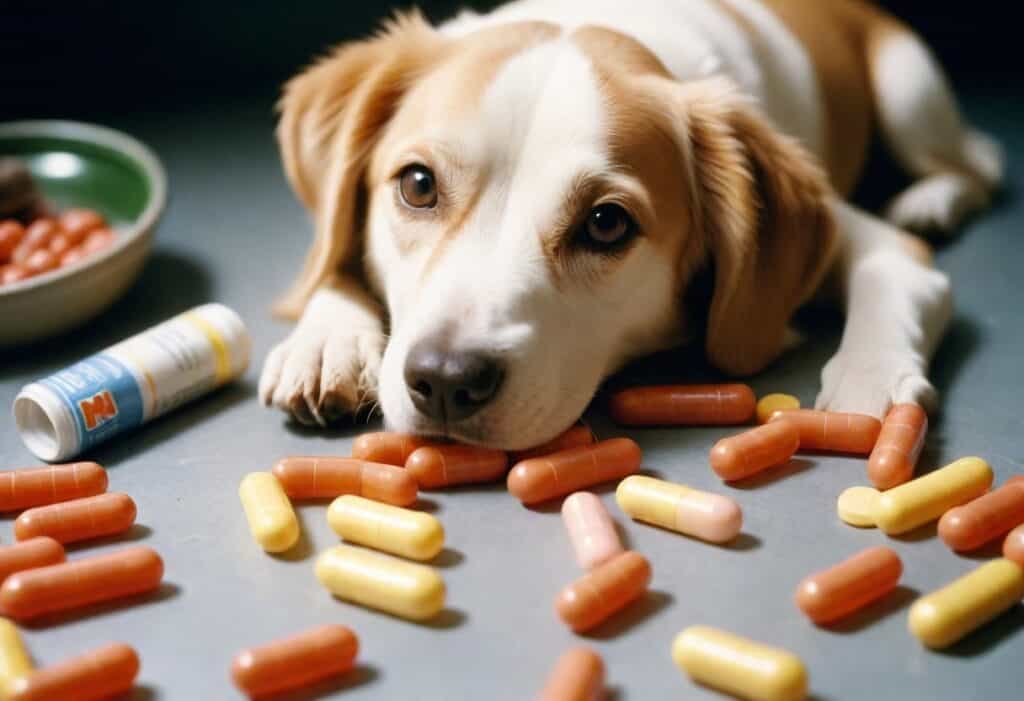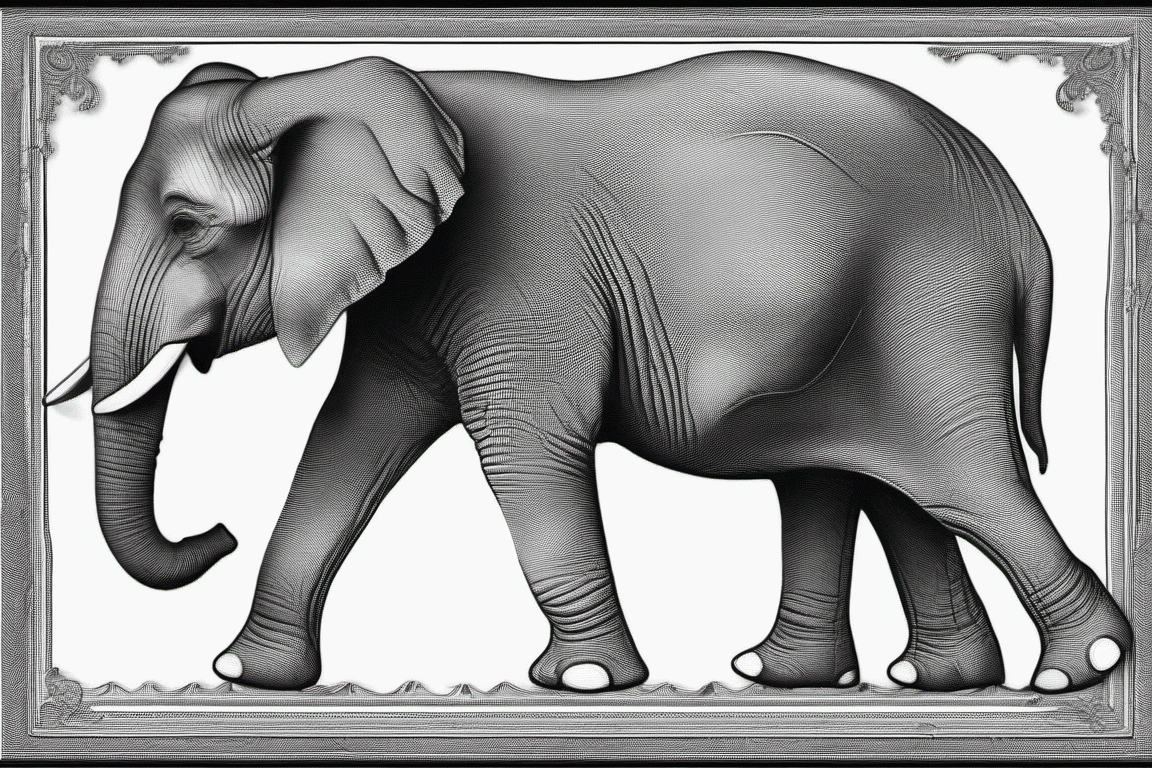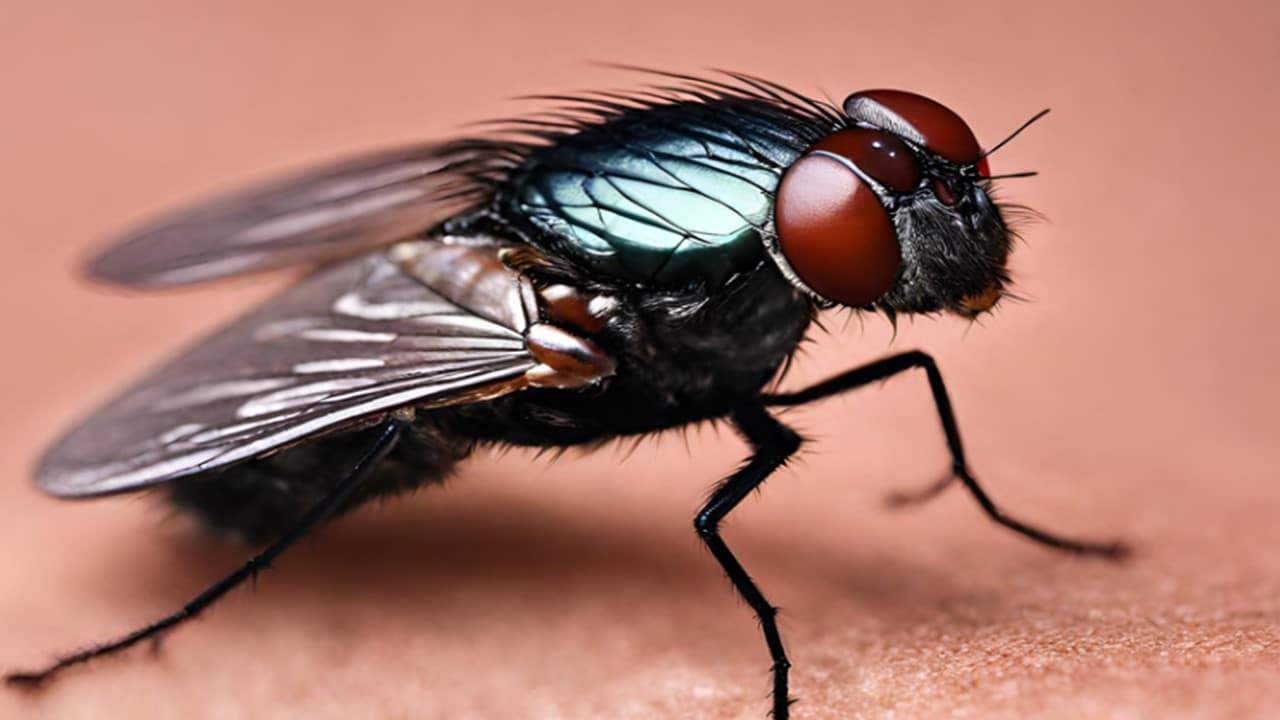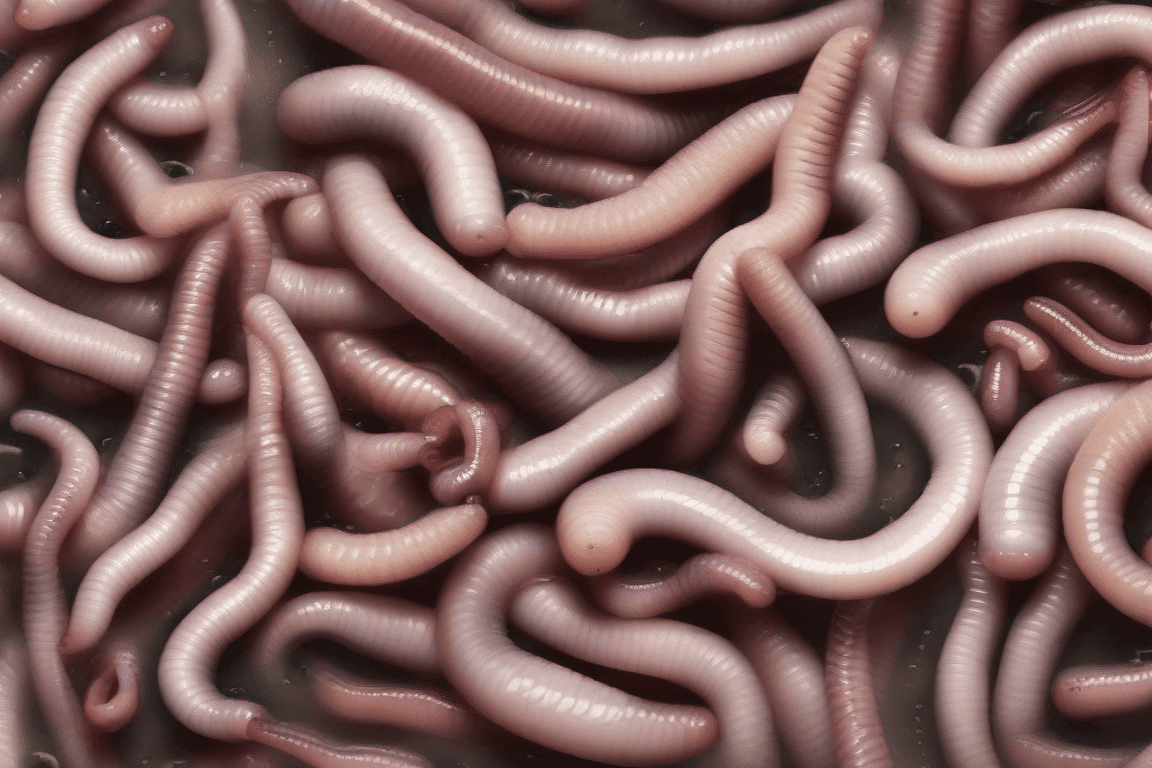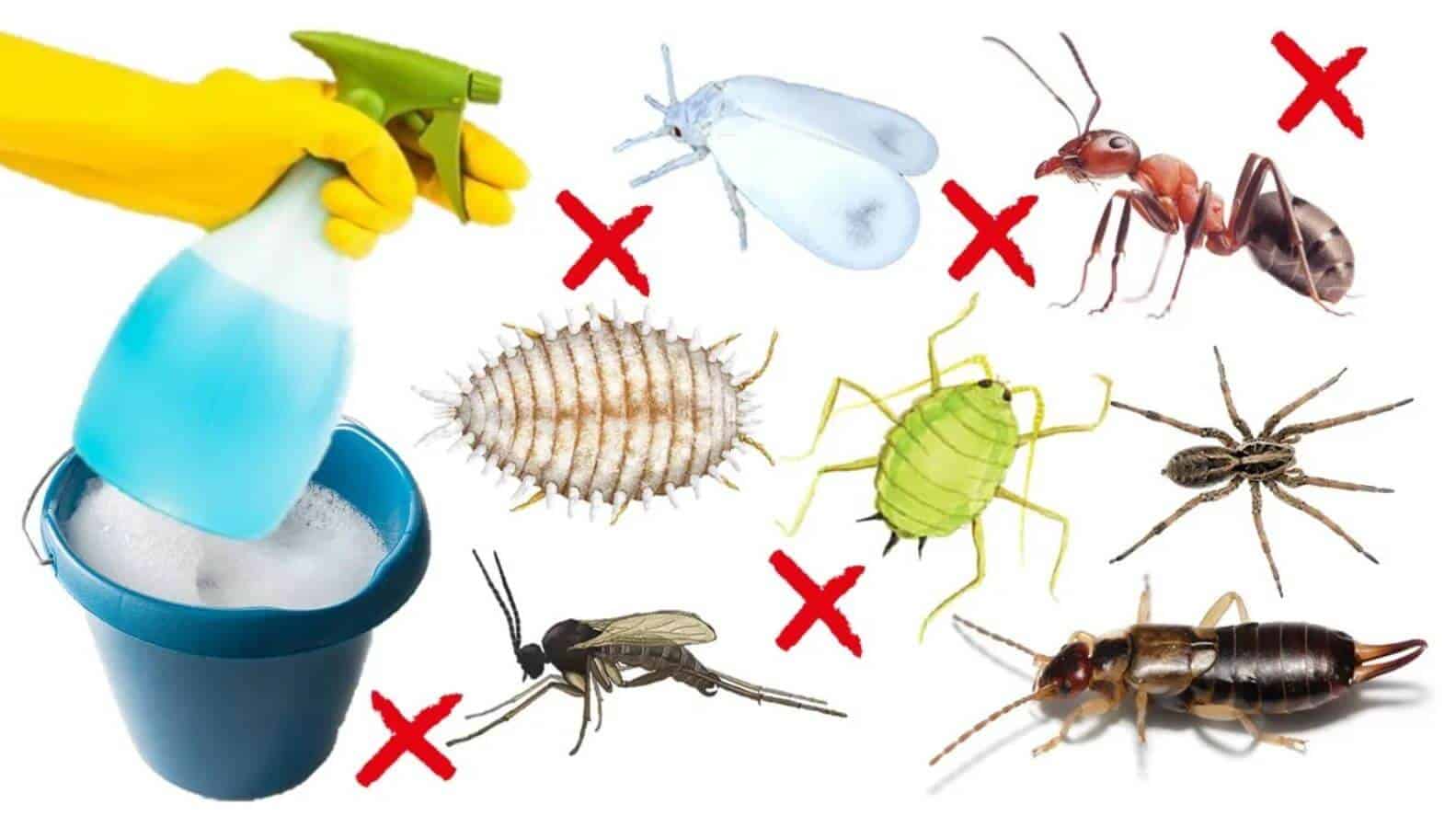Are you looking for the best vitamins for your dog?
This article is for you! We’ll discuss the benefits of different vitamins and minerals and how to choose the right one for your pup.
Plus, we’ll give you a few tips on ensuring your furry friend gets all the nutrients they need. So, what are you waiting for?
Table of Contents
What are Dog Vitamins?
Vitamins are essential nutrients that every living creature needs to survive, and your dog is no exception.
When discussing a healthy diet for dogs, we often think of foods like raw bones, kibble, and home-cooked meals. But dogs also need vitamins because they may not be present in their food.
Vets usually recommend feeding your dog a vitamin supplement to ensure it gets all the nutrients it needs to be healthy and strong. So, what are vitamins for dogs?
Vitamins are essential nutrients required in small amounts for the body to function properly.
Vitamins help the body produce energy, regulate metabolism, and maintain healthy skin and eyes. For example, vitamins A, D, E, and K are essential for your dog’s health.
What are the Best Vitamins for Your Dogs?
1. Vitamin A
Vitamin A is an essential nutrient that supports growth and development.
This vitamin is found in animal products such as fish oil and egg yolks. It is also found in the liver and bone marrow, which are high-quality sources of vitamin A.
It is crucial to ensure your dog has daily doses of vitamin A because, without it, they can develop skin problems such as dry, scaly skin and eye infections.
Your dog will benefit from receiving a supplement of vitamin A daily.
2. Vitamin D
Vitamin D is an essential nutrient for your dog’s health and well-being.
Vitamin D is also known as calcitriol, or cholecalciferol. Some of its functions include aiding in calcium absorption and helping to maintain stable blood pressure.
It also enhances phosphorus absorption, healthy bones and teeth, muscle function, and bone formation.
Dogs find it hard to synthesize vitamin D independently, so they require a daily nutrient intake. The best source of vitamin D for dogs is supplements.
Other sources include milk, egg yolk, and meat of organ meat, bone, and fatty tissues from animals such as fish, lard, liver, e.t.c.
3. Vitamin E
Vitamin E is a fat-soluble vitamin that supports dogs’ immunity and the nervous system.
It is also known as tocopherol or alpha-tocopherol. It helps maintain healthy skin and eyes and keeps excellent vision. This vitamin is available in dog foods as d-alpha-tocopheryl acetate.
In this form, it is easily absorbed by the body and can be found in most dry dog foods.
The vitamin E content of dog food can be listed on the packaging or in the ingredients list, but it is never given as an amount per 100 calories.
4. Vitamin K
Vitamin K is a fat-soluble vitamin that helps maintain strong bones and teeth. It also supports normal blood clotting and helps maintain bone marrow function.
It is present in most dog foods in the form of phylloquinone (K1), which is a synthetic vitamin K analog. Phylloquinone (K1) is obtained from lupin beans and used as a food additive.
It is also available in supplement form.
The phylloquinone (K1) present in dog food formulas varies from 0.35 to 1.6 mg/kg. According to the AAFCO Dog Food Nutrient Profiles (2009), phylloquinone (K1) is an essential nutrient.

5. Choline
Choline is also known as betaine and trimethylglycine (TMG). It belongs to the B-vitamin family and is involved in the production of acetylcholine, which is required for muscle contraction in your furry friend.
This nutrient is also essential for normal brain development and maintenance. Your dog’s brain needs choline to produce the neurotransmitter acetylcholine.
It is a key factor in memory retention and learning. Choline also helps control fat metabolism by activating enzymes that break down triglycerides into fatty acids, which are then used for energy.
The AAFCO Dog Food Nutrient Profiles (2009) state that choline should be included as a component of a dog food diet in the range of 0.4 – 1.2%.
6. Vitamin B
Vitamin B or thiamine is essential for normal nervous system function and skeletal development. It’s a cofactor for enzymes needed to produce acetylcholine, one of the most important neurotransmitters in your dog’s brain.
Another role for B vitamins is their role in energy metabolism. They help convert fats and carbohydrates into energy. Dogs fed a diet deficient in this nutrient may experience poor growth, muscle weakness, and weight loss.
This nutrient is vital for pregnant dogs, nursing dogs, and their puppies. In pet food, it is usually added as a component of the vitamin B complex in the form of riboflavin and niacinamide.
When added as a component of the vitamin B complex, these active components are not just present at milligram levels but also at microgram levels, which are ten times lower.
7. Vitamin C
Vitamin C or ascorbic acid is an antioxidant that helps maintain the immune system and repair injuries in body tissues.
It makes compounds called collagen and other proteins to form the framework of our skin, bones, and connective tissues.
It also supplies oxygen to cells and strengthens their walls against damage from free radicals.
This supplement plays a role in maintaining normal skin and mucous membranes and helps with the growth of bones and teeth.
Vitamin C also serves as an antioxidant and helps keep skin from aging.
8. Zinc
Zinc is an essential mineral that plays a role in maintaining your dog’s immune system.
It also helps to fight infections and boosts the immune system. It also helps make hormones and enzymes, making it an essential part of the body’s healthy functioning.
Zinc deficiency is rare in dogs, but if your dog does not eat enough zinc-rich foods, it may exhibit a decline in the immune system and the production of saliva. Dog foods that contain zinc include beef, salmon, e.t.c.
9. Iron
Iron is an essential mineral that helps your dog to form hemoglobin and red blood cells, among other things. It helps to carry oxygen to the muscles and tissues.
It is also crucial in producing energy in your dog’s cells.
You can find various iron-rich foods for your dog, such as beef, liver, lamb, e.t.c. If your dog does not eat enough iron-rich foods, it may be hard to perform these vital tasks.
10. Selenium
A trace mineral naturally found in many foods, selenium also plays a vital role in the manufacture of certain enzymes and hormones in your dog.
It reduces the effects of peroxidation in the body and helps build the immune system. Also, this nutrient can cause a reduced risk of cancer, as well as a reduced risk of heart disease.
Selenium deficiency can lead to several health problems, including impaired reproduction, cancer, and skin disorders. It can be found in many foods, such as fish, liver, and chicken.
Conclusion
There are many different vitamins and minerals essential for your dog’s health.
While some are more important, ensuring your dog gets a balanced diet with all the vital nutrients they need is crucial.
By providing your dog with a quality multivitamin, you can ensure they get everything they need to stay healthy and happy.
